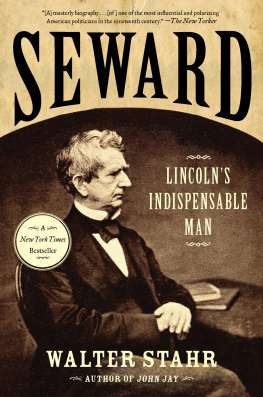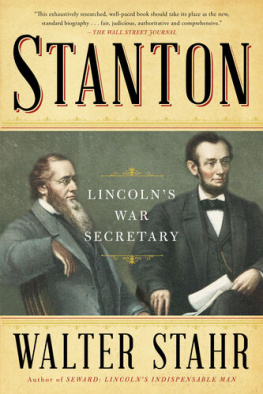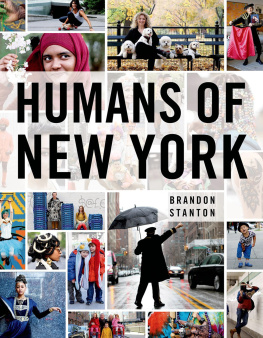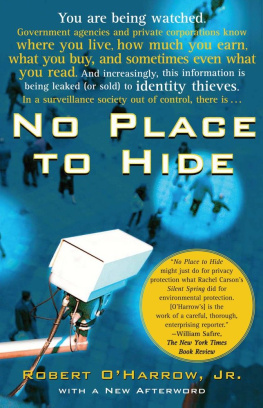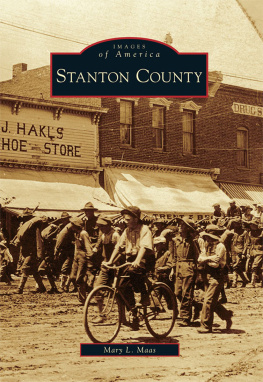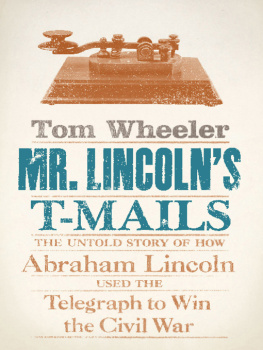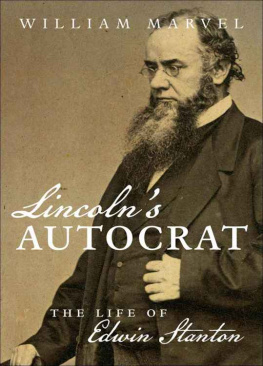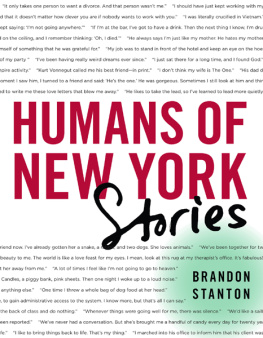Thank you for downloading this Simon & Schuster ebook.
Get a FREE ebook when you join our mailing list. Plus, get updates on new releases, deals, recommended reads, and more from Simon & Schuster. Click below to sign up and see terms and conditions.
CLICK HERE TO SIGN UP
Already a subscriber? Provide your email again so we can register this ebook and send you more of what you like to read. You will continue to receive exclusive offers in your inbox.
We hope you enjoyed reading this Simon & Schuster ebook.
Get a FREE ebook when you join our mailing list. Plus, get updates on new releases, deals, recommended reads, and more from Simon & Schuster. Click below to sign up and see terms and conditions.
CLICK HERE TO SIGN UP
Already a subscriber? Provide your email again so we can register this ebook and send you more of what you like to read. You will continue to receive exclusive offers in your inbox.
For my wife, Masami Miyauchi Stahr
Cast of Characters
Joseph Barnes (18171883). Barnes served as a military doctor during the Mexican War and in various army posts thereafter before Stanton made him head of the Medical Department and surgeon general in 1863. Stanton and Barnes became close friends, and Barnes tended Stanton in his last illness.
Edward Bates (17931869). A respected Missouri lawyer and judge, Bates was an outside candidate for the Republican presidential nomination in 1860. After the election Lincoln made Bates his attorney general; he resigned and retired in late 1864.
Henry Ward Beecher (18131887). Son of the preacher Lyman Beecher, brother of the author Harriet Beecher Stowe, Beecher became a famous preacher and speaker in his own right. Stanton arranged for him to speak on April 14, 1865, at the ceremony to raise the Union flag again at Fort Sumter.
John Bingham (18151900). An Ohio lawyer and Whig political leader, Bingham debated Stanton in the election of 1840. Bingham represented Ohio in Congress from 1855 through 1863, worked with Stanton as a judge advocate in the War Department, then returned to Congress, where he was one of the principal authors of the Fourteenth Amendment.
Jeremiah Black (18101883). Black became Stantons friend and patron when Black was attorney general for Buchanan, sending Stanton to California to handle the major land cases there. In late 1860, when Black was promoted to secretary of state, he persuaded Buchanan to bring Stanton into the administration as attorney general.
Montgomery Blair (18131883). Member of a powerful political family, Blair practiced law in Missouri and Maryland, then served as postmaster general for Lincoln. He hated Stanton.
Orville Hickman Browning (18061881). An Illinois lawyer and political leader, Browning was appointed in 1861 to fill the Senate seat vacated by the death of Stephen Douglas. From 1863 through 1866 Browning was a Washington lawyer, then served Johnson from 1866 through 1869 as interior secretary.
James Buchanan (17911868). On paper Buchanan was the best qualified president of the nineteenth century, having been a representative, senator, secretary of state, and minister to Great Britain. After his disastrous single term, he retired to his Pennsylvania farm, writing frequent letters to Stanton, until Stanton switched sides to join the Lincoln cabinet.
Benjamin Butler (18181893). Originally from New Hampshire, Butler practiced law and politics in Massachusetts and was one of Lincolns many political generals. He coined the term contraband and became infamous for his military occupation of New Orleans. After the Civil War he was a member of the House and a manager in the Johnson impeachment.
Simon Cameron (17991889). An amiable scoundrel from Pennsylvania, Cameron lasted less than a year as Lincolns first secretary of war. After the war he created a political machine in Pennsylvania, serving in the Senate from 1867 through 1877, when he was succeeded by his son James Cameron.
Zachariah Chandler (18131879). Chandler was a four-term senator from Michigan, one of the leaders of the Joint Committee on the Conduct of the War, and then a leading Radical during Reconstruction.
Salmon P. Chase (18081873). Born in New Hampshire, Chase moved to Ohio as a young man, practiced law, and entered politics. He and Stanton were very close in the late 1840s, although Chase was a Free Soiler and Stanton a Democrat. Chase was elected senator in 1849, elected governor in 1855, and appointed secretary of the treasury in 1861. He and Stanton were again close in later years, when Chase was chief justice.
Charles Dana (18191897). A journalist before and after the Civil War, Dana served as Stantons most trusted assistant secretary during the war, spending many months with Grant at his headquarters and sending detailed reports to Stanton.
Henry Winter Davis (18171865). A Maryland lawyer and member of Congress, Davis was a leading Radical Republican in the latter phases of the Civil War. When he died in December 1865, Stanton was one of the pallbearers at his funeral.
John Adams Dix (17981879). Dix became friends with Stanton during the weeks they served together in the Buchanan cabinet. Dix was a political general, serving most of the war in New York City, where he received Stantons frequent messages for the press.
Thomas Eckert (18251910). A telegraph engineer before the war, Eckert was in charge of telegraph operations for McClellan in 1862, then served as head of Stantons telegraph office until 1867. After the war he rose to be president of the nations largest telegraph company, Western Union.
Charles Ellet Jr. (18101862). A brilliant engineer, Ellet built the Wheeling Bridge and stymied Stantons efforts to have the bridge raised or removed. During the war Ellet worked closely with Stanton to create a fleet of reinforced naval rams, commanded them in the Battle of Memphis, and was mortally wounded.
William Pitt Fessenden (18061869). Stanton persuaded Fessenden, a longtime senator from Maine, to serve as Lincolns second secretary of the treasury. Fessenden soon returned to the Senate, where he provided one of the key votes against the removal of Johnson.
Ulysses S. Grant (18221885). Grant graduated from West Point, served in the Mexican War, then struggled in civilian life. He rejoined the army in early 1861, achieved success and rapid promotion, and worked closely with Stanton as commanding general of the Union Army. When Johnson suspended Stanton in 1867, Grant served as interim secretary of war, yielding the office back to Stanton in early 1868. Stanton campaigned for Grant in the 1868 election, and Grant eventually rewarded him with an appointment to the Supreme Court.
Henry Halleck (18151872). Scholar, lawyer, and army officer, Halleck first met Stanton in California, where Stanton sued him in a land case. Lincoln brought Halleck to Washington in 1862 as general in chief, but he functioned more as a first-rate clerk to Lincoln, Stanton, and Grant.
John Hay (18381905). Hay was one of Lincolns three private secretaries, living in the White House during the Civil War. Later in his life Hay was secretary of state under Presidents McKinley and Roosevelt.
Ethan Allen Hitchcock (17981870). Hitchcock was a career army officer who retired in 1855 to pursue religious and philosophical studies. Summoned back to Washington by Stanton in early 1862, he was an important military adviser to the secretary.
Joseph Holt (18071894). Stanton met Holt when they worked together in the Buchanan administration. Stanton appointed Holt as the nations senior military lawyer, the judge advocate general, in late 1862. They worked closely on many legal cases, notably the Lincoln assassination trial.
Next page

